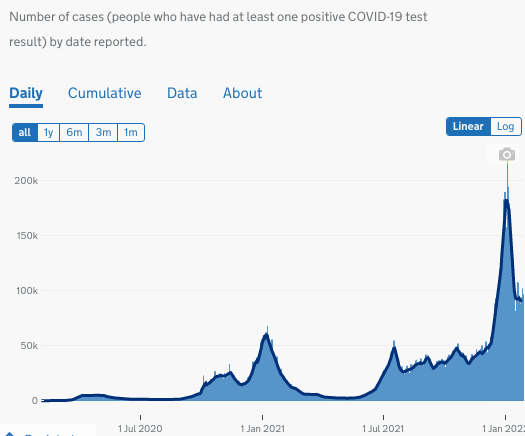The main problem is bloated software, not Linux
 AST night I saw a somewhat ‘trollish’ bunch of reports. I saw Slashdot [1], linking to Phoronix [2] with a grammatical mistake in the headline (“Yes, Linux Does Bad In Low RAM / Memory Pressure Situations On The Desktop”).
AST night I saw a somewhat ‘trollish’ bunch of reports. I saw Slashdot [1], linking to Phoronix [2] with a grammatical mistake in the headline (“Yes, Linux Does Bad In Low RAM / Memory Pressure Situations On The Desktop”).
Let me first clarify that I’m no kernel guru. Far from it. I’m a programmer, but not an OS programmer or kernel developer.
“Is this accurate?”
That’s what I asked people who may know better. They know kernel developers (and development) better than me.
“Is it true or is Phoronix taking the piss?”
I saw comments on it (almost 100 in Phoronix and 400 in Slashdot), but they’re short and vague. How is Linux doing compared to other OSes?
“ZSWAP makes a huge difference (RAM compression),” one person told me. “GRUB_CMDLINE_LINUX_DEFAULT="zswap.enabled=1 zswap.compressor=lz4 zswap.zpool=z3fold"”
“Windows 10 & MacOS & Ubuntu have RAM compression on by default,” he added.
“I’m not sure exactly what they have,” he continued, “but I remember reading about it before. RAM compression isn’t new at all. But it is relatively new (few years) to be on by default.”
Linux kernel space is typically ahead of the curve (compared to the competition); Con Kolivas comes to mind when it comes to claims that it’s optimised for servers but not for desktops (the scheduler, not RAM/swap management).
To check compression status on one’s system:
grep -R . /sys/module/zswap/parameters;sudo dmesg|grep zswap; sudo grep -R . /sys/kernel/debug/zswap;f;sudo sh -c 'cd /sys/kernel/debug/zswap;perl -E "say $(cat stored_pages) * 4096 / $(cat pool_total_size)"' # to check if loaded ; used ; ZswapCompressionRatio
How can one argue that GNU/Linux does worse than counterparts? Slashdot promoted this story with about 400 comments and Phoronix even has a grammatical mistake in its headline (Slashdot corrected it, Michael of Phoronix has not.) It’s an eyesore in a sense; both the message and the English. The headline also states that as fact even though it’s to be attributed to just one developer, Artem S Tashkinov. To an outsider (to kernel development) it may smack of clickbait. It’s stigmatising “Linux” as not successful on “desktop” because of “technical” “issues” (not OEM bribes, ISVs etc.), but if it’s based on purely factual bits, then let it be, I’m fine with it.
My gut feeling was, there’s likely more to the story; can Apple and Microsoft handle compression of RAM for instance? If so, how well? I don’t know people running Apple-branded systems and PCs with Windows on just 2 gigabytes of RAM (which is the most I ever had on any of my systems; same with my wife, who is a GNU/Linux user).
Another person, who is proficient at kernel matters, told me: “I have caused Linux to stall in swap hell many times and there are long list of particular causes of it. facebook made oomd to attempt to deal with it in userspace.”
The first person weighed in again: “they should compare to other distros, and to MacOS/Windows. But the complaint is valid, IMO: that Linux (defaults) *should* be ‘smarter’ when OOM; check what is your vm.vfs_cache_pressure. $ cat /proc/sys/vm/vfs_cache_pressure [...] I have mine set to 50, because this article makes sense to. (but I’m not sure what default is nowadays?)”
A third person wrote: “my Orange Pi with 2 GB of RAM running everything mainline is my main desktop, which runs generally fine with a swapfile of also 2 GB…”
That was in the #techrights IRC channel this morning.
The person added, “the bigger question for me is why applications these days are so heavy and slow…”
That last point is what I too have raised many times before. GNU/Linux is handling reasonably well a complete system with 2GB of RAM (or less). Super-bloated applications is where things start getting trickier.
Related/contextual items from the news:
-
It’s been a gripe for many running Linux on low RAM systems especially is that when the Linux desktop is under memory pressure the performance can be quite brutal with the system barely being responsive. The discussion over that behavior has been reignited this week.
-
It’s been a gripe for many running Linux on low RAM systems especially is that when the Linux desktop is under memory pressure the performance can be quite brutal with the system barely being responsive. The discussion over that behavior has been reignited this week.
Developer Artem S Tashkinov took to the kernel mailing list over the weekend to express his frustration with the kernel’s inability to handle low memory pressure in a graceful manner. If booting a system with just 4GB of RAM available, disabling SWAP to accelerate the impact/behavior, and launching a web browser and opening new web pages / tabs can in a matter of minutes bring the system down to its knees.






 Filed under:
Filed under: 


 AST night I saw a somewhat ‘trollish’ bunch of reports. I saw Slashdot [1], linking to Phoronix [2] with a grammatical mistake in the headline (“Yes, Linux Does Bad In Low RAM / Memory Pressure Situations On The Desktop”).
AST night I saw a somewhat ‘trollish’ bunch of reports. I saw Slashdot [1], linking to Phoronix [2] with a grammatical mistake in the headline (“Yes, Linux Does Bad In Low RAM / Memory Pressure Situations On The Desktop”).













 ERMS like “conspiracy theory” have become increasingly common when describing particular stories that are dubious. These terms (there are variations) have become synonymous with “false story” because more often than not they comprise scare-mongering and misdirection. There have been suggestions that sites promoting those “conspiracy theories” should be banned, but really, such theories have always existed and spread verbally. One of the fun things about the Web is that we can give visibility to such “conspiracy theories” and then bedunk them, helping people acquire or strengthen their critical skills. Like lateral thinking, critical skills equip people with a set of tests to apply in order to assess the validity of an argument, be it about religion, history, or whatever. So I’m all in favour of letting “conspiracy theories” spread. They help show people that not everything they hear is true, not even what they see on their television set. (Credit: image by Cory Barnes)
ERMS like “conspiracy theory” have become increasingly common when describing particular stories that are dubious. These terms (there are variations) have become synonymous with “false story” because more often than not they comprise scare-mongering and misdirection. There have been suggestions that sites promoting those “conspiracy theories” should be banned, but really, such theories have always existed and spread verbally. One of the fun things about the Web is that we can give visibility to such “conspiracy theories” and then bedunk them, helping people acquire or strengthen their critical skills. Like lateral thinking, critical skills equip people with a set of tests to apply in order to assess the validity of an argument, be it about religion, history, or whatever. So I’m all in favour of letting “conspiracy theories” spread. They help show people that not everything they hear is true, not even what they see on their television set. (Credit: image by Cory Barnes) ack in the days, people created Geocities-hosted Web sites. Well, Yahoo! has axed it, shortly after getting abducted by Microsoft in fact, so Geocities is no more (although many sites similar to it still exist). I created my site there in 1997/1998 and a few years later I got interested in Open Diary, which in some sense resembles Live Journal. Further down the line there was the phenomenon of blogging, which started in particular sites like Blogspot and Blogger, among many more (some of them are not surviving well). Free software like B2 and WordPress soon filled a gap and enabled more and more people to take control of their blogging platform and also register their own sites for the purpose. Around the same time, sites like MySpace grew, but they soon perished mostly because of competition which included an extension to ‘people-indexing’ services (resembling classmates reunion sites). Facebook was prominent among those. For news and discussion people had Digg, Reddit, and several more large sites, Many experiments emulating the above failed miserably for reasons that would require a separate long post. Later on, in recent years, celebrities joined Twitter and helped it grow very quickly, along with Free software clones such as Identi.ca. What joins together many of those services and pieces of Free software one can download to substitute the hosted prison is that they provide people with a place to express themselves and also find out what others are thinking. The thoughts of others are sometimes expressed by citation (news) or multimedia. It all helps weaken the cetralisation of so-called ‘mass media’ and it empowers people. This is one of the better achievements of the Web — that alongside wikis such as Wikipedia, but that’s another category of sites and a subject for another day.
ack in the days, people created Geocities-hosted Web sites. Well, Yahoo! has axed it, shortly after getting abducted by Microsoft in fact, so Geocities is no more (although many sites similar to it still exist). I created my site there in 1997/1998 and a few years later I got interested in Open Diary, which in some sense resembles Live Journal. Further down the line there was the phenomenon of blogging, which started in particular sites like Blogspot and Blogger, among many more (some of them are not surviving well). Free software like B2 and WordPress soon filled a gap and enabled more and more people to take control of their blogging platform and also register their own sites for the purpose. Around the same time, sites like MySpace grew, but they soon perished mostly because of competition which included an extension to ‘people-indexing’ services (resembling classmates reunion sites). Facebook was prominent among those. For news and discussion people had Digg, Reddit, and several more large sites, Many experiments emulating the above failed miserably for reasons that would require a separate long post. Later on, in recent years, celebrities joined Twitter and helped it grow very quickly, along with Free software clones such as Identi.ca. What joins together many of those services and pieces of Free software one can download to substitute the hosted prison is that they provide people with a place to express themselves and also find out what others are thinking. The thoughts of others are sometimes expressed by citation (news) or multimedia. It all helps weaken the cetralisation of so-called ‘mass media’ and it empowers people. This is one of the better achievements of the Web — that alongside wikis such as Wikipedia, but that’s another category of sites and a subject for another day.